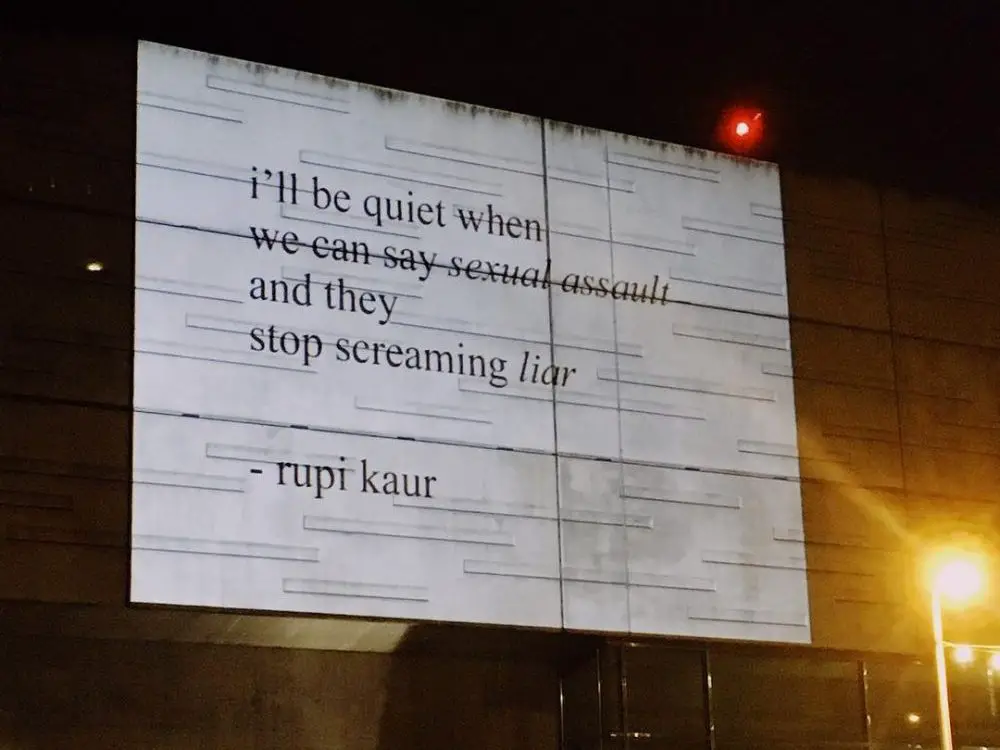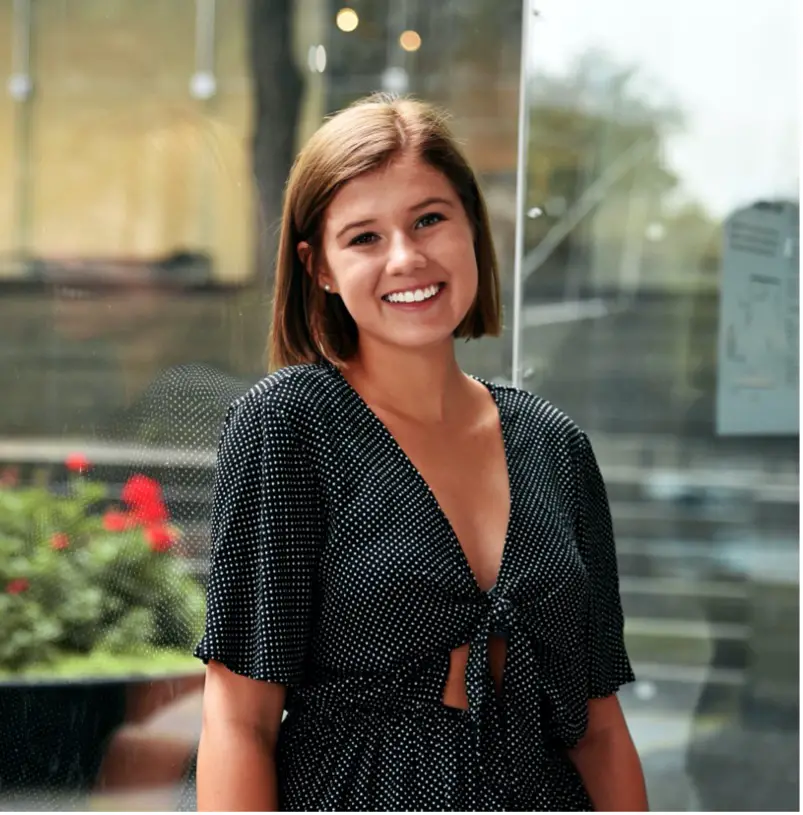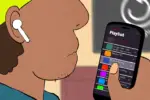Rupi Kaur is a wildly well-known poet among young people. She is by no means an Emily Dickinson, Edgar Allan Poe, Robert Frost, Walt Whitman or Langston Hughes — that much is clear. It would be egregiously wrong, though, to claim that her work is frivolous; the sheer sale numbers and versatility of “Home Body,” Kaur’s latest release, prove it.
“Home Body,” which was released in November, has already sold more than 8 million copies and has been translated into 40 different languages. Poems from the collection were even broadcasted all over the city of London.
Kaur posted these select broadcasted “Home Body” poems on her Instagram: “I’ll be quiet when we can say sexual assault and they stop screaming liar” on a radiant billboard located on Shoreditch High Street and “I am loving myself out of the dark,” illuminated on the Tate Modern. Kaur was overwhelmed, captioning her post, “seeing these poems all lit up and alive is giving me butterflies.” I have to admit, I had the exact same reaction.
Why did I feel these butterflies? Poetry has a way of gripping readers in a raw and visceral way; seeing poems come alive in the picturesque city of London is unprecedented, to say the least. Seeing pieces from Kaur’s “Home Body” lit up in one of the world’s most important cities quite literally brought the poetry of a young woman of color to life. Her writing is also less complex than traditional poetry — could you broadcast Frost, Whitman or Poe and have the same effect? Never. Kaur’s poetry is digestible in a way that many poets’ work is simply not. This accessibility allows her poetry to transcend boundaries — in this case, lighting up the streets of London, for its eight million residents to bask in.
If poetry can transcend the boundaries of the page(s) that it is written on, catapulting itself onto billboards in one of the most populated cities in the world, why can’t poetry also break conventional poetic guidelines? Kaur’s poetry lacks rhyme, verse and every poetic rule that you learn about in high school, but there’s a reason behind the madness.
Rules and norms can constrict the process, the flow. Kaur ignores the rules, allowing rivers of emotions to flow freely. This breach and lack of clear form has attracted millions of readers that normally wouldn’t enjoy poetry (and perhaps even grimaced during their high school lessons on Poe, Whitman, Hughes, Dickinson and Frost). Kaur makes space for prior poetry rejectors, creating a new sub-category of poetry that does in fact adhere to poetry’s quintessential, unwritten rule: convey emotion.
Kaur pours her heart out in “Home Body,” walking her readers through a journey of self-discovery through the past, the present and the untapped potential that the future holds. “Home Body” is raw and honest, “reminding readers to fill up on love, acceptance, community, family, and embrace change.” “Home Body” is relatable. “Home Body” addresses tribulations, pain, loneliness and all the dark nuances of life. “Home Body” also relishes in the light, the healing and the power of embracing change. We can all relate to these universal themes that Kaur outlines so plainly — and it feels good to be heard.
Not only are we heard, we are also addressed. Kaur isn’t elusive like the reclusive Dickinson and Poe. She’s radiant, a true standout performer, reading her poems to thousands of event attendees from North America, to Europe whenever she goes on tour. As Kaur notes on her website, performing is her “absolute favorite thing to do” and she “can’t wait to get back on the road” to see her fans’ lovely faces once again. It’s clear that Kaur flourishes in front of an audience and that her poetry is meant to be performed.
Traveling poetry performance is a rather new phenomenon. Historically, you didn’t catch poets from past centuries performing “on tour” in front of thousands of fans. Poetry used to be more of a private affair saved for bedtime readings. Now, though, poetry has turned into more of a shared experience. We can see poetry’s communal aspects, again, through Kaur’s select poems from “Home Body” projected on London billboards. London residents shared that experience. This modern form of reading poetry collectively opens new doors and potentially, new ways of coping collectively as well.
Kaur also addresses her fans through the all-powerful medium of social media. With social media, Kaur’s poetry has become incredibly widespread, as she accumulates followers and fans on Instagram and Twitter, sends out newsletters to her subscribers, hosts livestreams and workshops and sells merchandise, including clothing, impermanent tattoos and tapestries. Social media has allowed Kaur to solidify not only her poetic approach, but also her fanbase.
The 21st century has birthed a whole new generation of poets like Kaur that break poetic norms. By breaking with these conventions and using social media, Kaur and other “social media poets” have attracted unlikely readers — namely, teens.
Today’s teens spend more time on social media than on books and magazines, seen in the statistic “less than 20 percent of U.S. teens report reading a book, magazine or newspaper daily for pleasure.” Kaur, though, along with many other “social media poets,” has swept up a lot of these non-readers. From 2012 to 2017, for example, the percentage of poetry readers doubled, largely because of “’social media poets’ that connect with their vast, young audiences.” Kaur is breaching the gap, inspiring millions of teens that perhaps would not otherwise consider picking up a book.
Although it’s impossible to argue that Kaur will ever live up to poetry’s “greats,” her work has used modern forms (social media and performance venues) to transform the genre entirely, mobilizing teens and adults alike to pick up a poetry book. Kaur’s work has made big strides and has changed millions of peoples’ lives for the better, by touching on universal tribulations, followed by healing and rebirth. Kaur is a force to be reckoned with and it’s more than time that we acknowledge this.

















